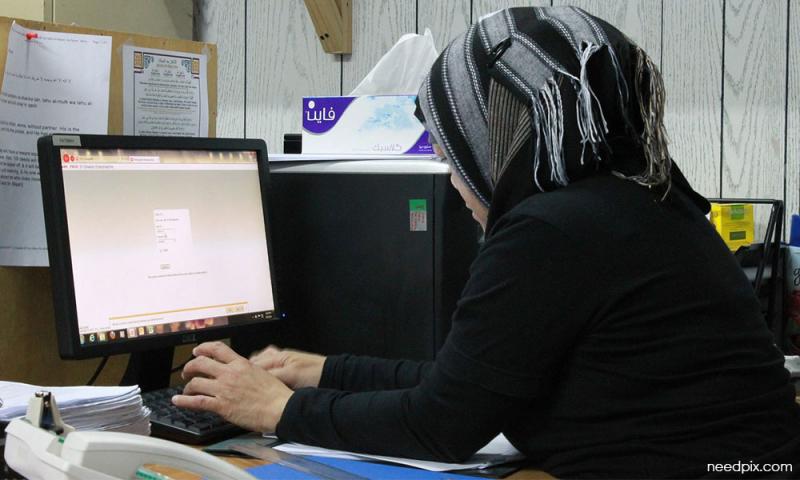LETTER | Better working world for mothers begins in public sector
LETTER | Childcare is a tough job even in the best of times; and it is tougher for working mothers now more than ever in light of the Covid-19 pandemic which has reversed progress on gender parity in labour-force participation, threatening gender equality.
Thus, it is not incomprehensible that Malaysia’s female labour force participation rate (FLFPR) in 2020 was merely 55.3 percent compared to males at 80.6 percent.
Notwithstanding, the global and regional statistics raise concerns. According to the Global Gender Gap Report 2022 by World Economic Forum, Malaysia was ranked low at 103rd place among 146 countries surveyed, lagging behind all of our peers in Asean except Brunei and Myanmar.
Understandably, the pandemic has taken a toll on labour productivity. The impact is more profound on working mothers who commonly take on the brunt of childcare responsibility as research reveals women put up with an increase of 5.2 hours per week for childcare, compared to 3.5 hours for men since the pandemic began.
As a result, 54 percent of women with children in the household reported reduced productivity, compared to 46 percent of men, mainly due to the pressures of looking after the family during the pandemic.
These statistics highlight the pressing need to close the gender gap by implementing targeted initiatives to alleviate the disproportionate burden of childcare borne by women.
To begin with, the public sector may spearhead initiatives in a two-pronged approach: to provide assistance to working mothers and to encourage a balanced allocation of childcare responsibility between working parents.
Several strategies have been outlined in the 12th Malaysia Plan 2021-2025 which sets out to improve FLFPR to 59 percent by 2025.
Work flexibility
Chapter 13: Strengthening Public Sector Service Delivery underscores the importance of flexible working arrangements for women.
Working part-time, working remotely or a combination of both allows women to organise their working hours while meeting the needs of their organisation. It is suggested that necessary digital infrastructure will be provided to support such working arrangements.
This is a highly welcomed initiative, particularly when accompanied by a fair and objective performance evaluation which is tied to work output instead of hours.
For those who are unable to adopt flexible working arrangements due to the nature of work, the provision of reliable and affordable childcare facilities in the workplace is highly essential.
Childcare facilities
Besides allocating RM30 million to establish childcare centres in government buildings, the government will also be introducing a new law which mandates employers to provide childcare facilities.
These facilities should be scrutinised by the relevant authorities for quality improvement and the prevention of unwanted incidents.
Notwithstanding the provision of childcare facilities, working parents are still struggling to send their children to childcare centres which, since the outbreak of Covid-19 and the emergence of influenza-like illness, are cracking down even harder on children showing the slightest symptoms of illness.
Hence, the government should consider giving time off and childcare leave as exemplified by our neighbouring country, Singapore which offers six days of paid childcare leave to working parents whose child is below seven years old.
Breastfeeding-friendly policies
Furthermore, breastfeeding-friendly policies should be in place to ensure successful lactation continues after women return to work from maternity leave.
The Malaysian Breastfeeding Policy, formulated in 1993 and revised in 2005, encourages all mothers to practise exclusive breastfeeding from birth until six months and continue until two years of age to ensure adequate nutrition which is critical to child health and development.
The formulation of this national policy must be followed by stronger commitments namely legal provision for breastfeeding breaks and compulsory provision of lactation facilities at the workplace for working mothers to express and store breastmilk without stigma.
Equal childcare responsibility
Accompanying the aforementioned short and medium-term strategies should be sustainable policies to reset the allocation of childcare responsibility between working parents.
Unlike working fathers, working mothers are more likely to experience a “double shift” – a full workday and indefinite hours of childcare.
In juggling the competing priorities of career and childcare, working mothers often face challenges in terms of employment prospects, salary negotiation and career advancement.
To this end, working mother-friendly measures including maternity leave and flexible working arrangements should be offered equally to working fathers as an incentive to take on more childcare responsibilities.
At present, female civil servants are offered up to 90 days of paid maternity leave while male civil servants are only given seven days of paid paternity leave. Female civil servants are also eligible for unpaid childcare leave for up to one year. It would be a game-changer if these facilities are offered to be shared between working parents, eliminating the impact of childcare on women’s career trajectories.
Juggling childcare responsibilities while pursuing a career is a challenging feat. Hence, commitment and policies to create a supportive environment for working mothers are paramount to improving gender equality in employment and the workplace.
By implementing the aforementioned measures, the public sector will act as a role model to private companies and set the scene for a better working world for mothers.
The views expressed here are those of the author/contributor and do not necessarily represent the views of Malaysiakini.
RM12.50 / month
- Unlimited access to award-winning journalism
- Comment and share your opinions on all our articles
- Gift interesting stories to your friends
- Tax deductable
